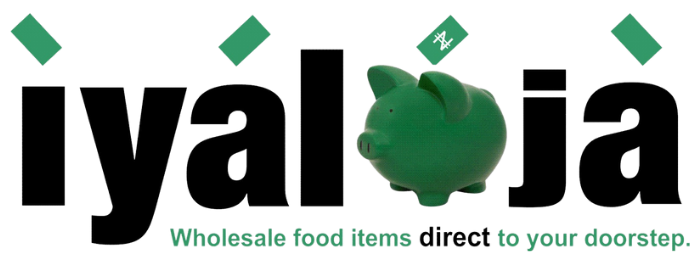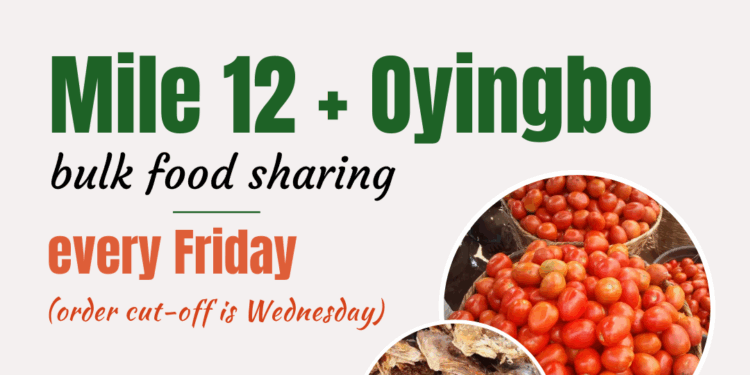In Nigeria’s current economic climate, affordable food access has become one of the most pressing challenges for urban households. Inflation continues to outpace income growth.
The National Bureau of Statistics reported that food inflation hit 21.2% in April 2025, with staples like yam, tomatoes, and rice leading the spike.
The dynamics are even more interesting in a city like Lagos, where a burgeoning population and traffic challenges compound the day-to-day costs of living and commuting.
In this environment, any solution that can reduce food costs in Lagos while maintaining convenience is not just welcome—it’s necessary. That’s what makes Iyaloja Direct, a growing Lagos-based food distribution startup, worth paying attention to.
A Modern Reinvention of a Cultural Legacy
At its core, Iyaloja Direct is a tech-enabled revival of a familiar Nigerian tradition: communal foodstuff sharing. Decades ago, groups of women in local communities would come together and pool money to purchase food, fruits, and livestock in bulk, splitting the cost and quantity to reduce individual purchase burden. Iyaloja Direct has brought the foodstuff sharing system online.
By aggregating orders from households across Lagos, the company consolidates demand, buys in bulk directly from wholesale markets like Mile 12, Oyingbo, and Ketu, and distributes smaller shares to customers’ doorsteps.
The result is that even someone ordering N15,000 worth of food items benefits from bulk pricing power by joining Iyaloja Direct’s market runs. The company services customers across Lagos, from Lekki to Surulere, Ikoyi to Festac, Sangotedo to Ikeja, and more.
Convenience, Without the Premium Price Tag
Lagosians have long assumed that convenience (especially delivery) comes at a steep price. E-commerce platforms and personal shoppers typically add markups that make foodstuff more expensive than buying it at the market yourself. But Iyaloja Direct inverts that logic—delivering convenience at a reduced price, not a premium.
According to the company and corroborated by hundreds of customer reviews on Google, buyers routinely save between 35–40% compared to buying those same items at neighborhood retail markets.

One customer shared:
“I had a great experience with Iyaloja Direct! My groceries were delivered on time and in excellent condition. Everything was well-packaged. I really appreciate the reliability and convenience. Highly recommend their service.”
— Lawal D. (via Google Reviews)
Another customer also stated:
“Iyaloja Direct is very good and reliable. Her products are fresh extremely affordable. You will get more than your money’s worth.”
— Benny J. (via Google Reviews)
The key lies in collective aggregation of foodstuff shopping: Iyaloja Direct doesn’t just help households avoid the market stress—they help them outsource bargaining power and reduce inefficiencies in the supply chain.
Meeting the Middle Market with Lean Infrastructure
What’s particularly noteworthy about Iyaloja Direct is how it manages to serve a price-sensitive audience without owning warehouses, delivery fleets, or a logistics-heavy footprint. The business relies on a lean network of personnel, market women, online presence, and scheduled “market runs” to keep operating costs low.
From a business model perspective, it checks three important boxes for long-term viability in Nigeria:
- Asset-light operations
- Community-driven demand aggregation
Built-in price elasticity
In essence, Iyaloja Direct are creating an ecosystem where low-income and middle-class households benefit from economies of scale that would otherwise be inaccessible to them.
Implications for Urban Food Policy and Micro-Retail
As policymakers continue to debate how to tackle food insecurity in Nigeria’s urban centres, innovations like Iyaloja Direct offer useful lessons:
- Household-level interventions matter.
- Collective purchasing can scale efficiencies even without large-scale subsidies.
And most critically, trust-based, culturally resonant models often outperform complex, top-down interventions in informal economies.
If replicated across other cities—or supported through policy—it’s easy to imagine a future where this model helps reduce market volatility, improve food access, and even formalize elements of Nigeria’s informal food economy.
Stay ahead with the latest updates!
Join The Podium Media on WhatsApp for real-time news alerts, breaking stories, and exclusive content delivered straight to your phone. Don’t miss a headline — subscribe now!
Chat with Us on WhatsApp





